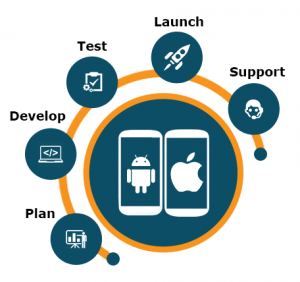
Development Experience
We work in these mobile technology stacks:
- Apple iPhone & iPad custom development
- Android Development
- Mobile Database Development
- HTML5 Responsive Design
- Bootstrap
- Mobile Stores: iTunes, Google Play, Appworld & Amazon
Native Apps
Our apps targeted the following segments:
- Health & Safety
- Educational
- Extending Corporate Web Applications
- Applications for Financial Institutions
- Insurance
- Catalogs for Web Retailers
We do Social Media Marketing too.
We have onboard skills that can help supercharge any social media strategy and include the following:
- How to get quality app reviews
- How to get more FB followers & Likes
- How to get people tweeting about your product or service
- How to Advertise in Mobile Apps
- Using iAds, AdMod, LeadBolt
- Implementing and using PUSH notifications to keep your customer engaged
- How to build your Mobile store(s)
It’s not just a fad.
It’s now business strategic, so entry into the mobile market needs a planned strategy that takes the overall market into account including social media in a cost-effective manner, or it can get very expensive.
Whether it be with a free or paid app, a game or a book, or if you have a need to turn smartphones into a two-way sales tool for your customers and staff, or even delivering business intelligence to these devices, we can make it happen.
Contact us today!
HTML5 Vs Native Vs Hybrid mobile app development. Which to use?
HTML5 Mobile app development
Native Mobile App development
Hybrid mobile app development














